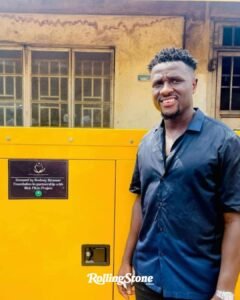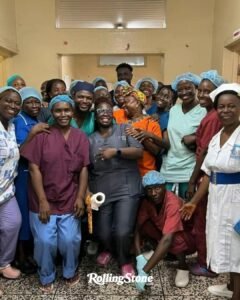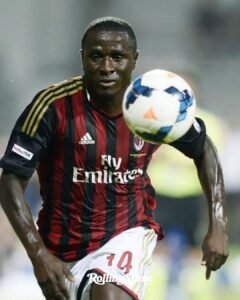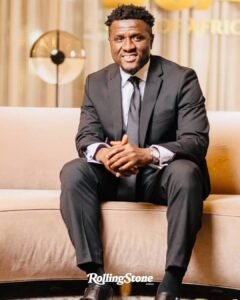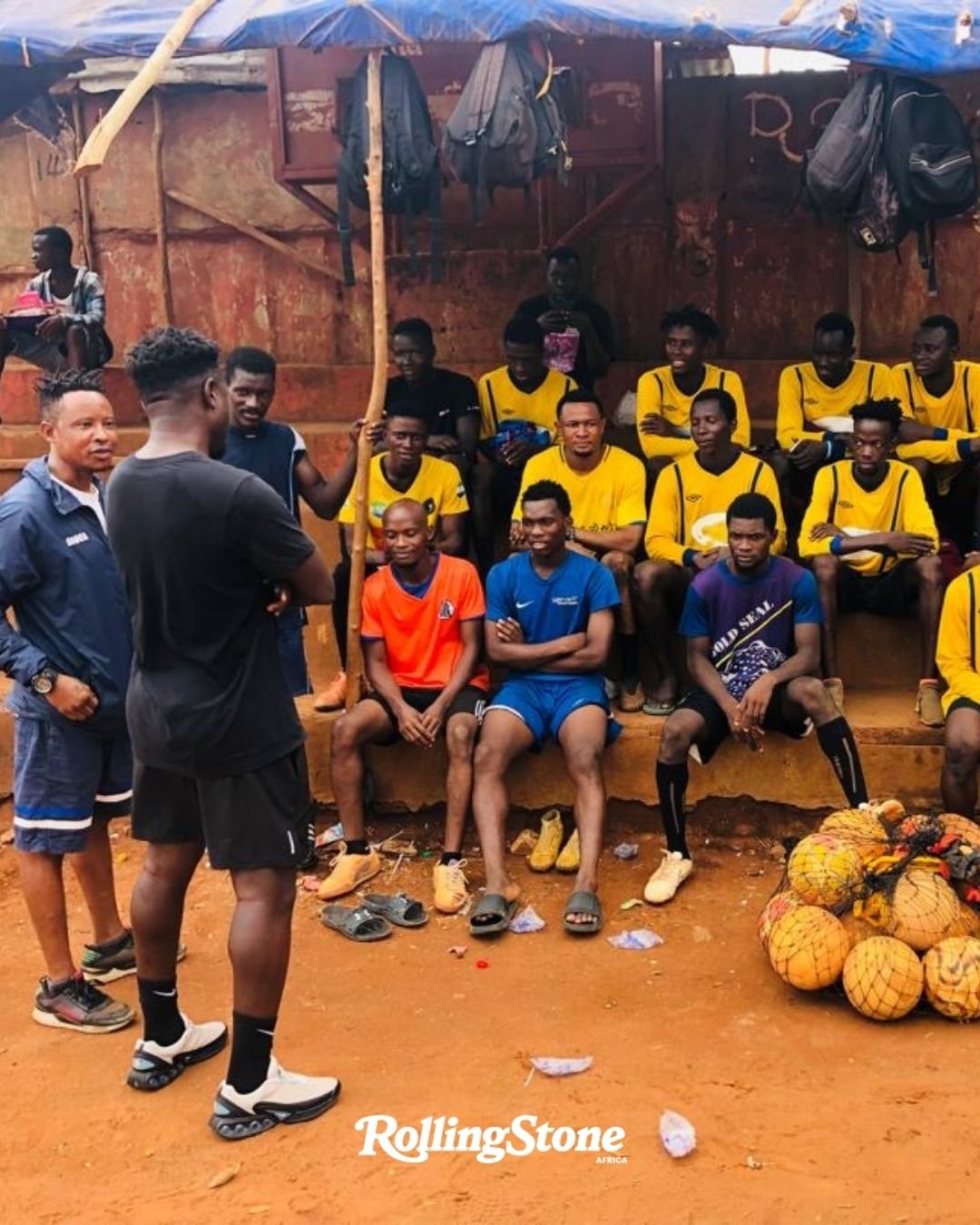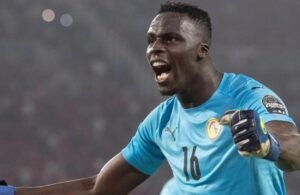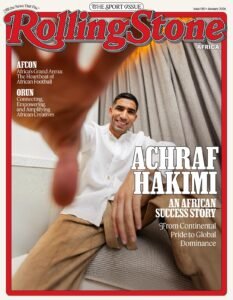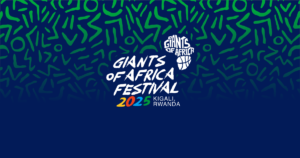When Rodney Strasser was a young boy playing football barefoot in the streets of Freetown, he didn’t picture himself one day training beside Ronaldinho, taking tactical lessons from Paolo Maldini, or walking into the San Siro as an AC Milan player. What he did know, even then, was that football was more than a game. It was possibility. It was escape.
And eventually, it would become purpose.
Today, years after lifting trophies in Europe and surviving the kind of injuries that end most careers, Strasser has traded stadium lights for schoolyards and speeches. The former Sierra Leone international is now the founder of the Rodney Strasser Foundation, a rapidly growing initiative focused on sports, education, and health. His mission is simple but powerful:
“From the pitch to the people.”
That line, he says, is not just a tagline, it’s the legacy he wants to leave behind.
Growing Up in Freetown: Where Football Was a Birthright.
Football wasn’t just a hobby in the Strasser household, it was inheritance.
“My dad was a footballer,” Rodney recalls. “He played for Sierra Leone, so I got it from my family background. I started playing when I was very young, in school, in the neighborhood… always with friends, always with a ball.”
Like many African footballers, access was limited, but passion was limitless. “Sometimes we didn’t even have shoes,” he says. “But we played anyway.”
That drive eventually put him on a path very few young Africans ever get to walk.
The Leap to AC Milan: A Dream That Rewired His Mindset.
At just 17, Strasser was signed by AC Milan, one of the most elite and historic clubs in football. For a teenager from Sierra Leone, the shock was as cultural as it was professional.
“It changed my mindset completely,” he says. “Because the people I was watching on TV, Ronaldinho, Maldini, Cafu, suddenly they became my teammates.”
He speaks about that moment with gratitude, not ego. The real lessons he learned in Milan were not about step-overs or tactics:
“The biggest lesson was humility. Those players were world stars, but they were so humble. They respected me. They guided me. That stayed with me forever.”
In training sessions, he shared locker rooms with Ibrahimović, Thiago Silva, Robinho and more. But what struck him most was not fame, it was the culture of respect and professionalism.
“It taught me how to be serious, how to behave, how to treat people the right way,” he says. “That’s still how I live.”
The Injuries That Nearly Ended Everything, and Why He Didn’t Quit
Strasser’s career stalled not because of talent, but because of surgeries, three major ones.
Each time he returned to the pitch, another setback waited.
“That was the toughest time in my life,” he admits. “You rehab for months, come back, and then get injured again. It slows you down physically and mentally.”
But quitting was never an option.
“I wasn’t just playing for myself. I was playing for Sierra Leone, for Africa. There are so many people behind you when you make it. You can’t just give up. Because if you rise, others rise through you.”
That sense of responsibility would later become the backbone of his foundation.
Representing Sierra Leone: “The Feeling Is Not the Same as Club Football”
Despite playing for one of Europe’s biggest clubs, nothing compares, he says, to playing for home.
“When you represent your country, it’s different. It’s the whole nation behind you, not one club, not one city.”
He still remembers the moment Sierra Leone qualified for AFCON after 26 years.
“We didn’t even win the trophy, we just qualified, and the whole country was celebrating. That feeling is bigger than any medal I won in Europe.”
When asked what would mean more to him, a Champions League trophy or bringing glory to Sierra Leone, he doesn’t hesitate.
“Country first,” he says. “Always.”
The Birth of the Rodney Strasser Foundation
Strasser didn’t wait until retirement to give back, he started helping long before the foundation had a name.
“My family always gave. My house was a place where friends came to eat, sleep, stay. So helping is not something I learned, it’s something I lived.”
During the Ebola crisis, he partnered with AC Milan to create awareness and raise funds. Later, he began donating equipment, paying school fees, and supporting kids quietly, from his own pocket.
But he knew he needed structure.
“I didn’t want giving to stop with me. I wanted a legacy, something that continues even when I’m not here.”
So he made it official. The Rodney Strasser Foundation was born, with three pillars:
Sports
Education
Health
Motto: Stay Healthy, Save Lives
Slogan: From the Pitch to the People
Why Sport + Education Must Be One System in Africa
In Italy, Strasser lived what most African kids are denied: the ability to study and play football.
“In Africa, they make you choose, school or sport. But in Europe, you can do both. We need to change that.”
The foundation is now building multi-sport school courts in Sierra Leone, football, basketball, futsal, tennis, alongside academic support.
“We want kids to go to school because there is sport there. Not instead of it.”
It’s not just about creating professional athletes. It’s about producing leaders.
“Football is a short career. Even if you make it, you need to know how to manage contracts, money, life. Education protects you.”
A Generator That Saved Lives, and Why It Matters
One of the foundation’s most powerful moments happened during a crisis. A major hospital in Sierra Leone lost electricity, putting lives at risk.
Strasser didn’t post a hashtag, he bought a large generator and paid for it himself.
“When you say ‘save lives,’ it has to mean something,” he says. “Real help is action, not talk.”
Even now, most of the foundation’s funding still comes out of his own pocket.
Message to African Youth: “Talent Is Not Enough”
When asked what young Africans should hear from him, he doesn’t talk about football first, he talks about mindset.
“Talent is not enough. You need discipline, learning, support, and the heart to give back.”
He believes Africa will change the day success stops being personal and becomes collective.
“Whatever you get in life, someone helped you to reach it. So when you rise, you must pull others up.”
What He Wants to Be Remembered For
Not the trophies.
Not the stadiums.
Not the players he stood beside.
“When people hear ‘Rodney Strasser,’ I want them to remember the guy from Sierra Leone who helped, from the pitch to the people.”
And he says it slowly, like a sentence that will live longer than a career.
